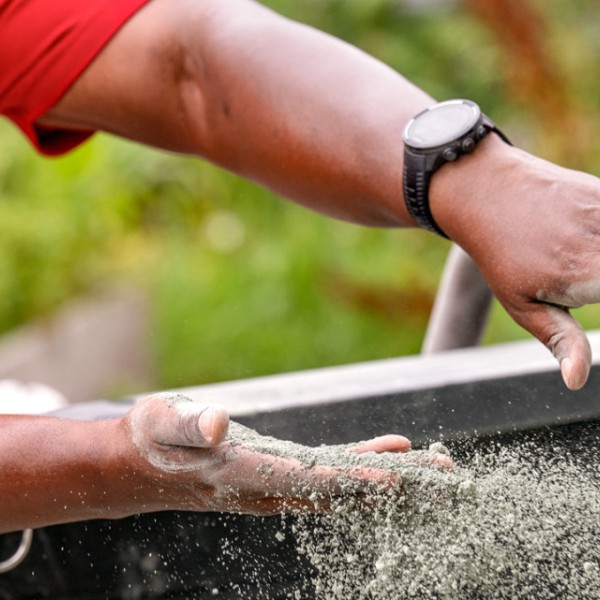Today, cassava is cultivated on millions of smallholder farms across sub-Saharan Africa and consumed daily in a wide range of African dishes. This versatile food crop can be harvested and boiled fresh or dried and processed into flour or cassava chips. Cassava is also increasingly in demand for a variety of industrial processes, including those used for pharmaceutical products and biodegradable plastics.
But until NextGen Cassava was formed, cassava breeding had not received the level of investments and attention on par with breeding work devoted to African staple crops like maize. NextGen is making up for this gap by adopting a proven suite of advanced tools to rapidly deliver a wide range of competitive cassava varieties. These approaches include:
- Using genomic selection to identify ideal breeding stock: NextGen scientists and plant breeders have used advanced crop screening technologies to develop genetic fingerprints or “markers” linked to qualities such as disease resistance, starch quality and higher levels of vitamin A. This information has been used to rapidly scan the genomes of thousands of cassava varieties to more efficiently identify promising individuals and quickly detect evidence of beneficial traits in their offspring.
- Deploying new, highly efficient phenotyping tools: NextGen has been testing and deploying new tools such as nearinfrared spectroscopy (NIRS) and ground-penetrating radar (GPR) to enable breeders to more rapidly and efficiently assess different qualities of new cassava varieties, technically known as “phenotyping.” With these tools, crop breeders can quickly assess a high numbers of roots, even though they are already deep in the field, for food qualities and other key traits.
- Flowering innovations: Many important cassava varieties do not flower at all under natural field conditions, which slows down breeding work. NextGen scientists have developed methods to encourage flowering, including something called photoperiod manipulation, along with pruning practices and plant growth regulators. These methods can produce up to 15 times as much fruit and seed, which allows cassava breeders to generate many more progenies from their “crosses” of two cassava varieties.
- Using advances in hydroponics to produce planting material: Like other root crops such as yams or potatoes, farmers cultivate cassava from a piece of a cassava plant or “cutting,” as opposed to a seed. Developing enough planting material to meet demand can be a bottleneck for replacing old varieties with improved ones. NextGen partners at IITA found a solution by adopting and scaling up a greenhouse method called semi-autotrophic hydroponics (developed by the U.S. crop science company SAHTECNO) that can produce 10 times or more seedlings than previous methods.
- Breeding (and pre-breeding) for viral disease resistance: Viruses that cause cassava brown streak disease (CBSD) and cassava mosaic disease (CMD) continue to devastate crops in East Africa. Continuous movement of germplasm and pathogens make further epidemics inevitable. To reduce the impact of outbreaks, NextGen has identified genetic sources of resistance and is introducing these “defender genes” into local cassava varieties in East Africa and also preemptively in West Africa.






